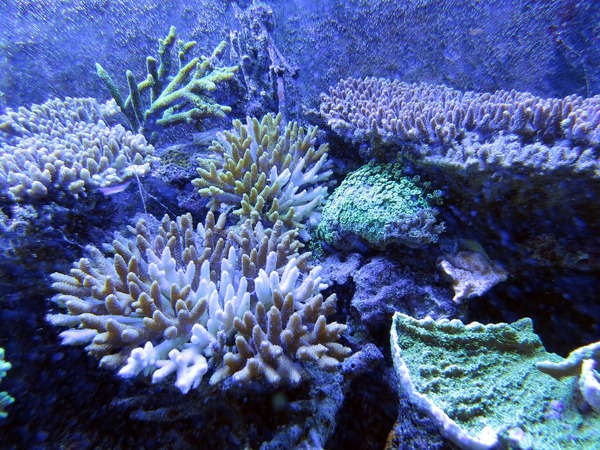Effects of Ocean Acidification on Marine Calcium Carbonate
(1) River Trail Middle School, Johns Creek GA, 30097, (2) Atlantic Oceanographic and Meteorological Laboratories (AOML), NOAA, Miami, Florida
https://doi.org/10.59720/20-050
Ocean acidification poses a serious risk to marine organisms with calcium carbonate exoskeletons. The purpose of this study was to investigate the effects of acidification on the mass of corals and shells composed of calcium carbonate. Corals and shells composed of calcium carbonate were placed in four sets of jars with different pH levels. After six weeks, we measured the change and percentage change in mass of the corals and shells. Our results indicated that there was no significant difference in the percent change in mass for the corals and shells exposed to different pH levels. However, the corals experienced significantly greater loss of mass than the shells exposed to the same experimental conditions. This suggests that ocean acidification may pose a greater risk to corals than it does to shells. Given the role played by corals in the marine ecosystem, these findings emphasize an urgent need for mitigating and reversing the effects of ocean acidification.
This article has been tagged with: